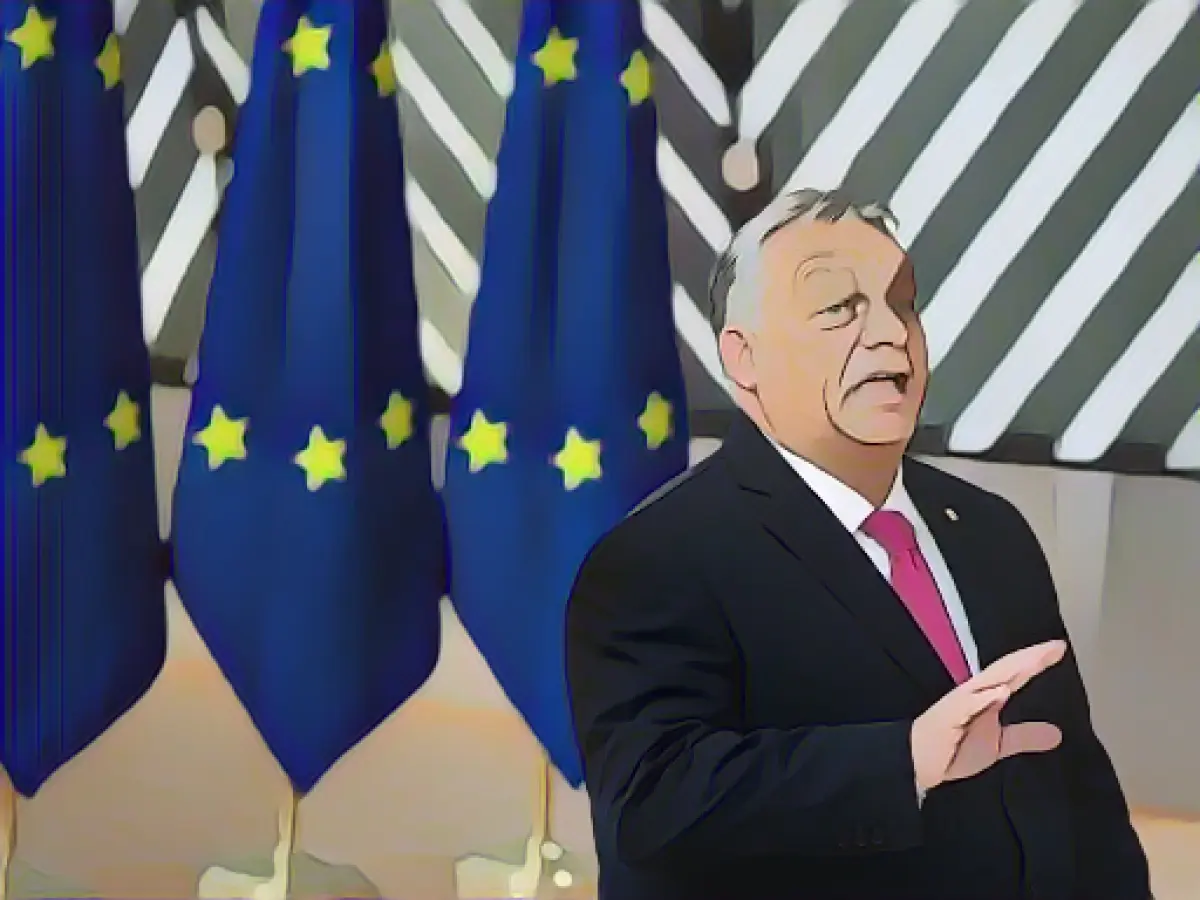Orban wants to force debate on Ukraine policy in the EU
Hungarian Prime Minister Viktor Orban wants to use a new veto threat to force a fundamental debate on the European Union's Ukraine policy. In a letter sent to EU Council President Charles Michel and distributed to the EU partner countries in Brussels, Orban writes that no decisions on additional financial support, security guarantees or the EU enlargement process can be made at the level of the heads of state and government until a consensus has been reached on the future strategy for dealing with the country attacked by Russia. An agreement on further sanctions against Russia is also not possible until then.
Orban's letter is causing a stir in Brussels because a large majority of EU states actually want to make far-reaching decisions in favor of Ukraine at a summit meeting on 14 and 15 December. These include the start of EU accession negotiations and further financial support worth billions until the end of 2027. However, a decision is only possible if none of the member states veto it.
Specifically, Orban is calling for a series of questions to be addressed by the heads of state and government of the EU member states. One is whether the strategic EU goal of a victory in Ukraine in conjunction with fundamental political changes in Russia can still be considered realistic. He also asks, for example, what kind of security architecture is conceivable in Europe after the war and how Ukraine's desire to join the EU can be reconciled with political and economic realities.
Call for a detailed analysis
In Orban's opinion, the basis for the debate should be a detailed analysis of the consequences of sanctions to date and the support programs for Ukraine. For example, the EU Commission has not yet communicated how the European economy has been affected by the punitive measures against Russia.
The most recent EU declaration on Ukraine, which was adopted in October, is based on the assumption that the EU's current strategy is working, Orban argues in the letter, which the German Press Agency was able to view. However, the situation on the ground casts doubt on this, as the situation on the battlefield remains largely unchanged despite the Ukrainian counter-offensive. The developments justify a "period of reflection" and possibly an adjustment of the EU's objectives and instruments, he writes.
What are Orban's goals?
Diplomats conceded on Wednesday that Orban was asking the right and important questions in the letter. At the same time, however, his recent meeting with Kremlin leader Vladimir Putin had further fueled suspicions that he was acting under the influence of Russia. It is also likely that Orban's aim is to free up more than 13 billion euros in frozen EU funding for his country. The EU Commission announced around a year ago that it would only release the funds once Orban's right-wing nationalist government had fully implemented promises to uphold the rule of law. Orban is of the opinion that his country has fulfilled all conditions.
The EU's financial support for Ukraine is currently only secured until the end of the year. A total of 18 billion euros has been earmarked, of which the EU transferred a further 1.5 billion euros on Wednesday. "This helps us to maintain economic stability under war conditions," thanked head of government Denys Shmyhal on Telegram. Brussels has supported Ukraine with 85 billion euros since the Russian invasion almost 21 months ago. EU Commission President Ursula von der Leyen had proposed that the EU accession candidate should receive a further 50 billion euros by the end of 2027.
- Despite the majority of EU states wishing to provide substantial aid to Ukraine, including the commencement of EU accession negotiations and additional financial support, Hungarian Prime Minister Viktor Orban believes that no such decisions can be made without addressing his concerns about the EU's strategy towards Ukraine and its impact on EU-Russia relations and finances.
- Orban's stance on Ukraine policy within the EU is partly driven by his interest in releasing EU funding that has been withheld due to his government's rule of law issues, totaling over 13 billion euros, which he believes his country has fulfilled the necessary conditions to receive.
Source: www.dpa.com








